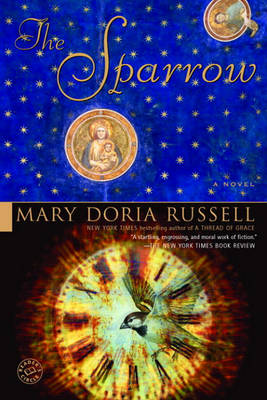Reviewed by jamiereadthis on
So the priests, not me— never me— are the only ones shocked when the mission doesn’t result in peace and goodwill for all of man- and alien-kind. It serves well the ego and hubris of all first-contact stories, which if that isn’t the point, it very well should be. It’s God’s mission, God’s, God’s, God’s, which all-too-often means us, us, us. We think we’re so enlightened, we think we can do better this time. We can’t. We never can, because we don’t carry the answers that can fix something we don’t understand and is not even broken.
There was a lot, a lot of telling, not showing, and I did my usual thing of wanting impossibly good characters to shake it up and do something immoral so I could love them a little bit, but that might be less the book’s fault and more the consequence of my usual reading. To say this was well outside the wheelhouse of what I’ve been reading all year, yes. And not because of the sci-fi. (If anything this was very light on the “sci.”) There are some deeply religious/spiritual/Catholic ideas here. People are condemned and punished for sins that I could never even fathom as sins. There are presuppositions the author makes that are across the Grand Canyon from my own. And so it’s interesting in the way that always is, to try such different trains of thought for a while, a perspective so different from my own.
Because it’s never not fun to shake things up, to say a hearty “yes!” what someone asks, “you want to fly this asteroid to this other planet?” That’s what we do. Right before we screw the whole mess up.
Reading updates
- Started reading
- 22 October, 2012: Finished reading
- 22 October, 2012: Reviewed
